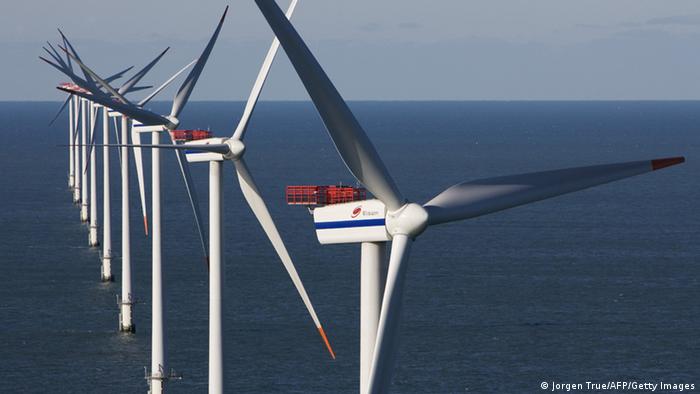
Wind turbines at the German offshore Riffgat power plant nine miles off the North Sea island of Bokum (Forbes) (The GWPF)
As would be expected, Germany’s goal is to achieve a modern, climate-friendly, sustainable and secure energy supply for themselves. Germany has actually stated that by law the share of renewable energies in total electricity consumption will be increased to at least 35% by 2020. By no later than 2050, that share is expected to grow to at least 80%. In 2020, the share of renewable energies in heating is to reach 14%.(BMU)
A large problem with moving from primarily nuclear energy to green energy is the cost. German Environment Minister Peter Altmaier sees that every little thing will help. When it comes to cooking, he wants people to avoid preheating and rely more on residual heat. He stated that people can lower brightness and contrast on their televisions to save money on their electric bill. Germany will face an increase in the renewable energy surcharge in efforts to try and move towards green energy. The government predicts that the renewable energy surcharge added to every consumer’s electricity bill will increase from 5.3 cents today to between 6.2 and 6.5 cents per kilowatt hour — a 20-percent price hike. (Spiegel)
Money seems to be the primary issue in Germany’s push towards green energy. To gain funding for huge projects is extremely difficult and you have to manage that as best you can. A great idea is one thing, but being able to execute and use your great idea is another. There has been a large wind farm constructed nine miles off the North Sea island of Bokum. The wind turbines there are, believe it or not, currently being powered by fossil-fueled generators. They need to be in motion in order to avoid corrosion from the salt in the air. They can’t implement a power line to the turbines yet as originally planned due to lack of financial assistance. Investors don’t trust the project. (Forbes)
All in all, Germany seems to be making a serious push towards green energy, but is hitting the expected bumps in the road. Money is a necessity when trying to pull off a complete transition in energy production and it comes slowly, if at all. When presented, the projects are not clear and concrete enough to attract investors. People are scared to throw their money at something that they feel they don’t necessarily need. It seems as if Germany is moving in the right direction, but it is clearly going to be a slow process with nothing set in stone.
